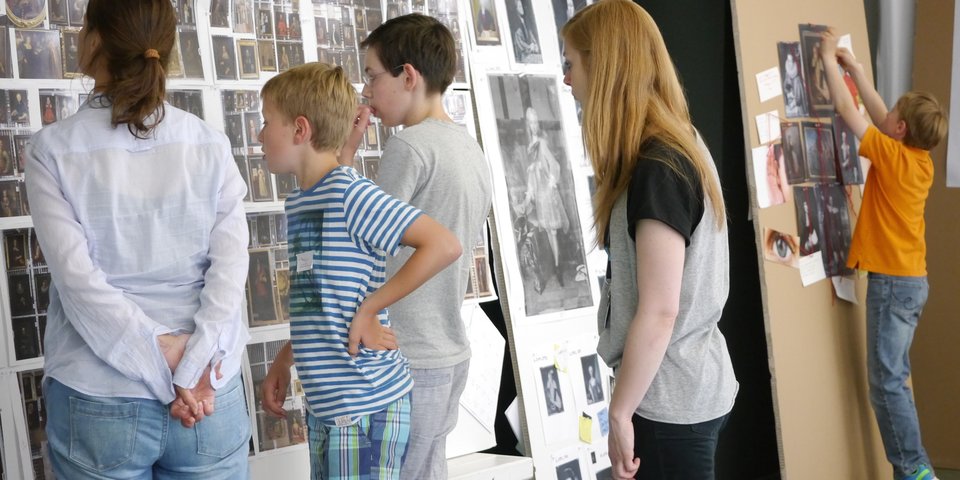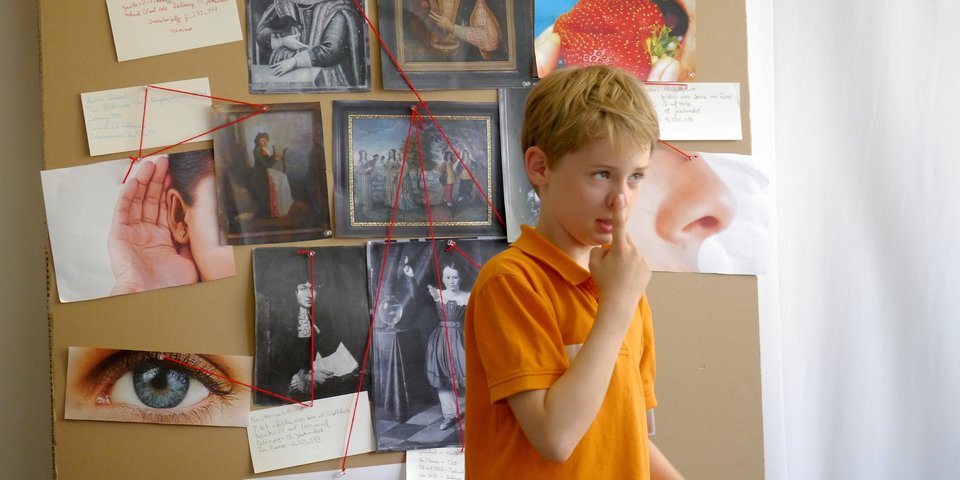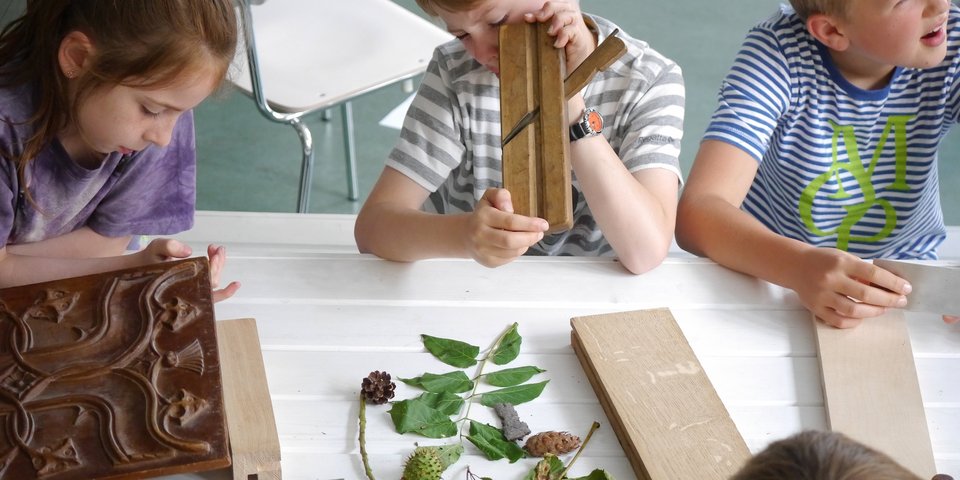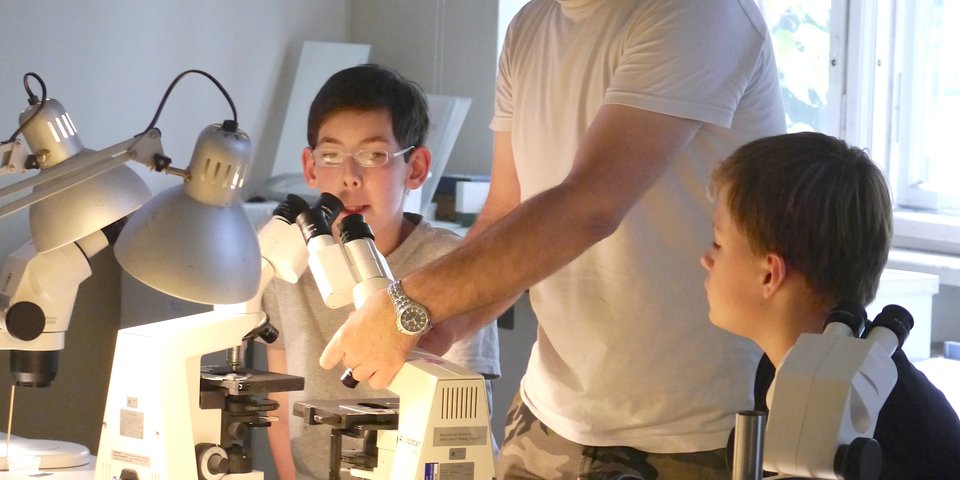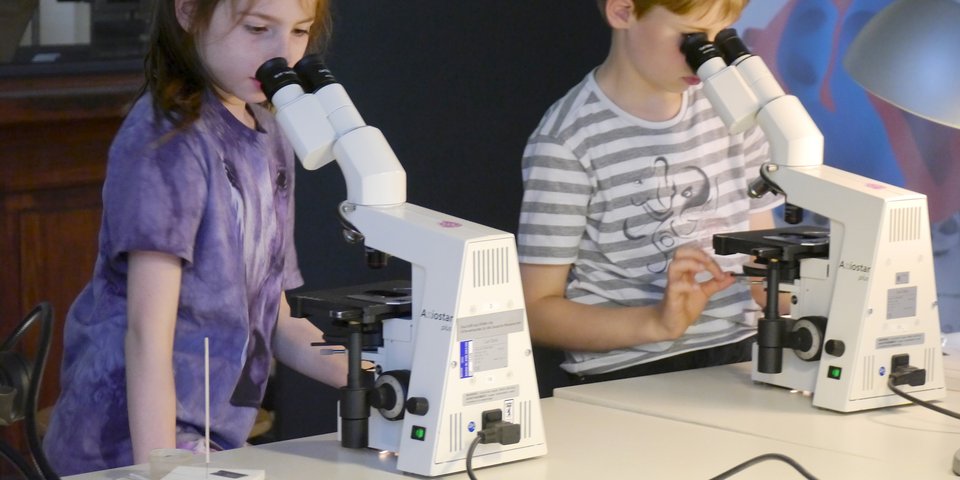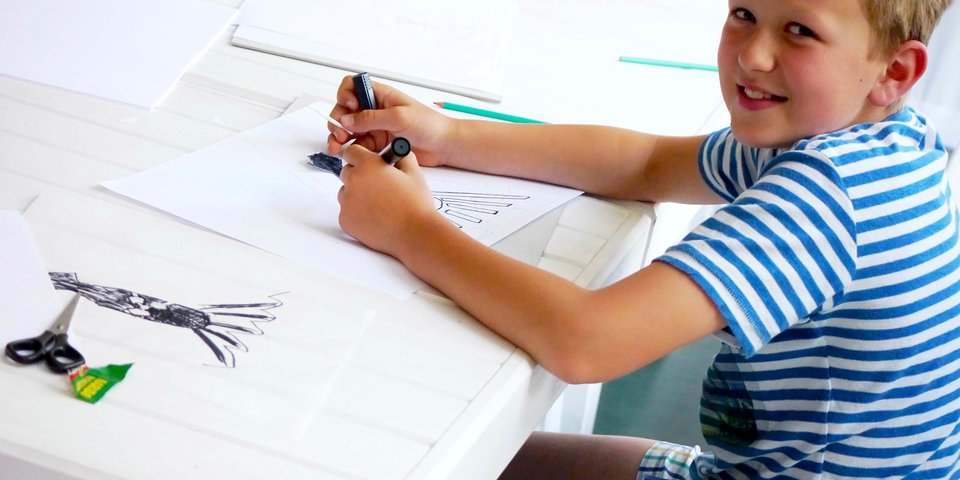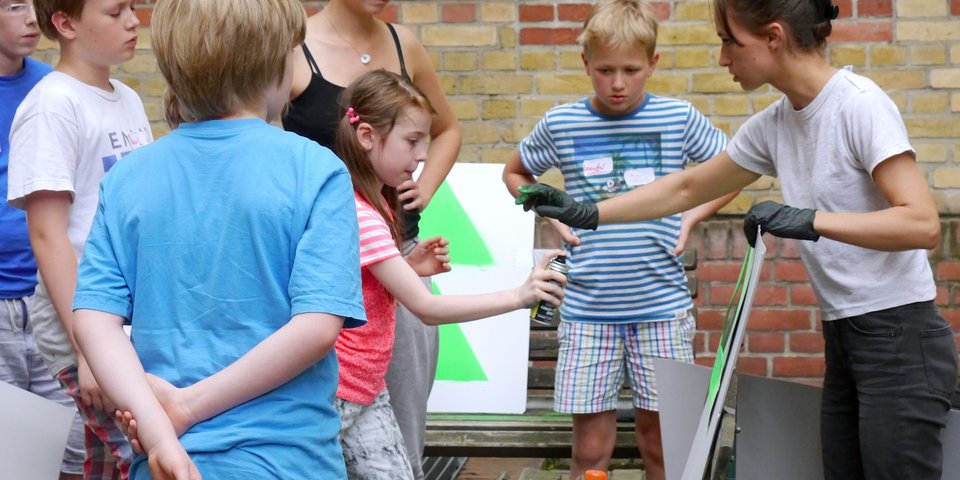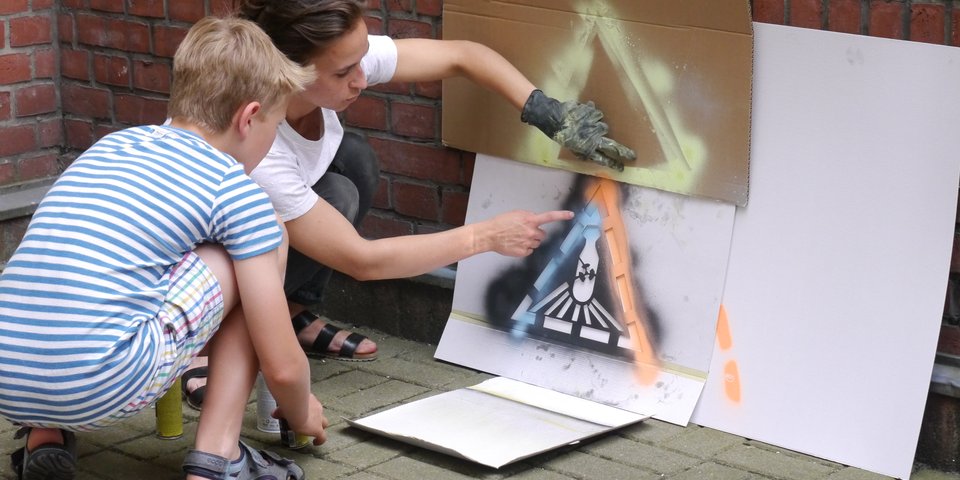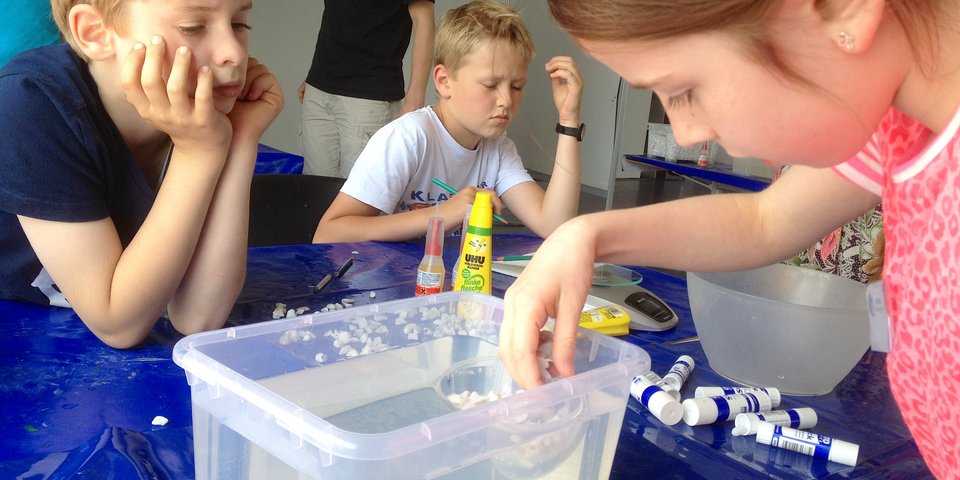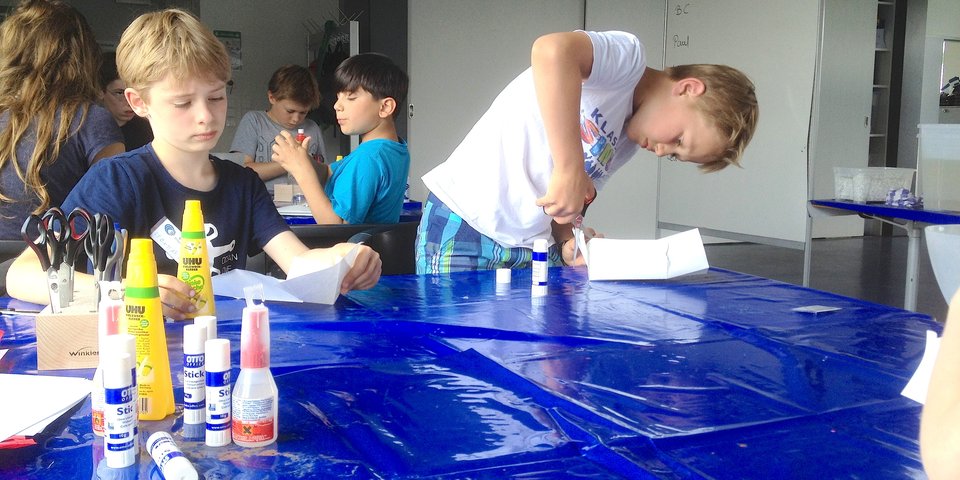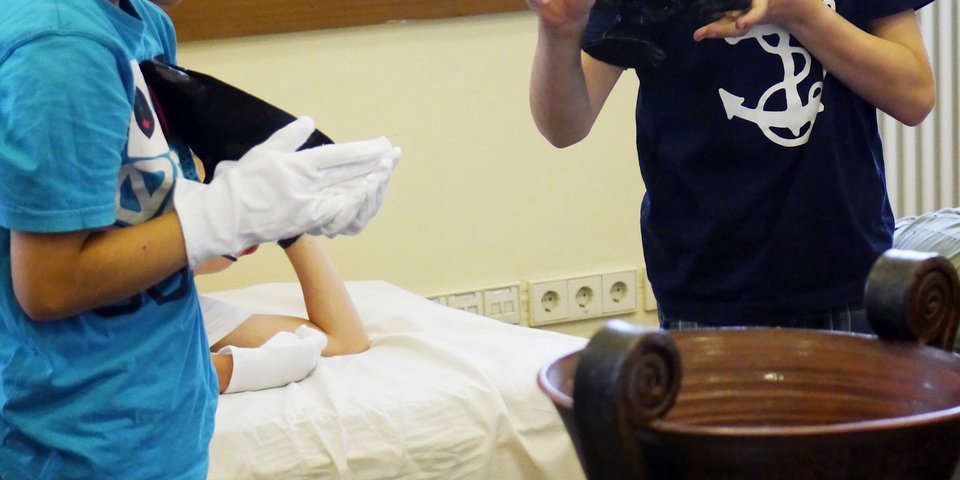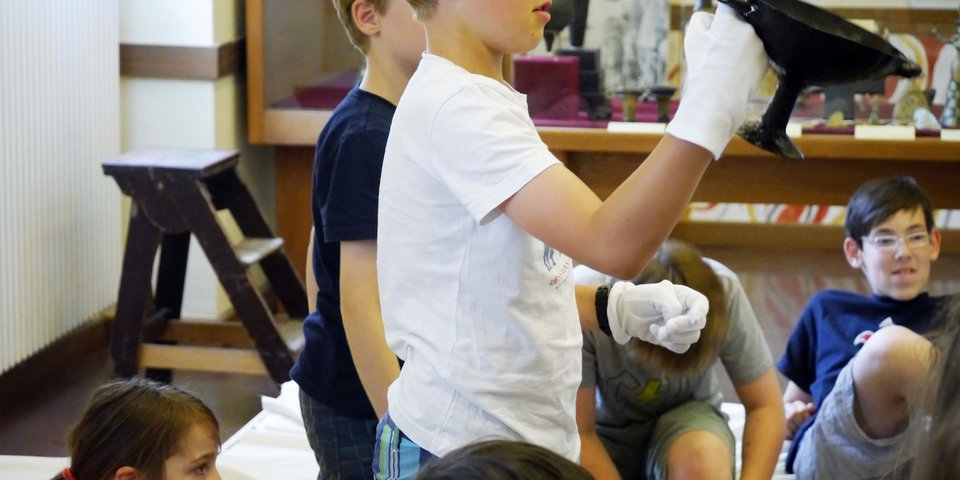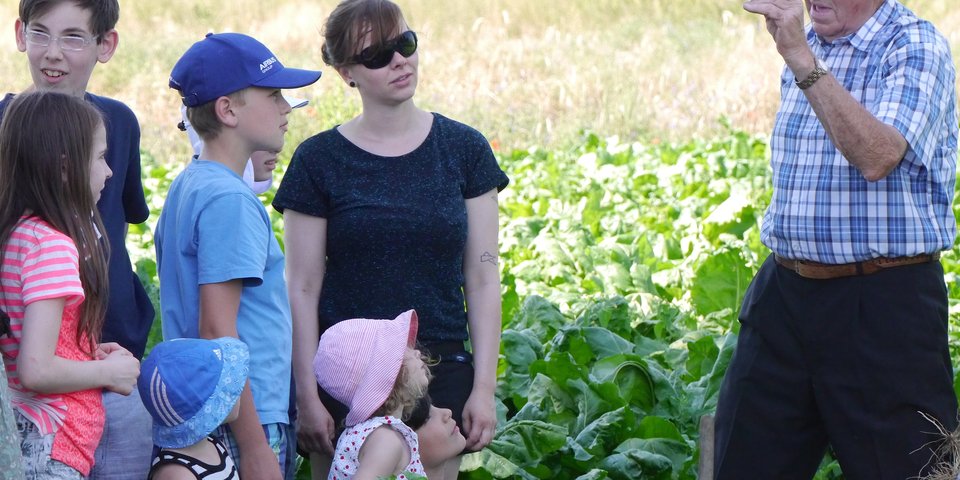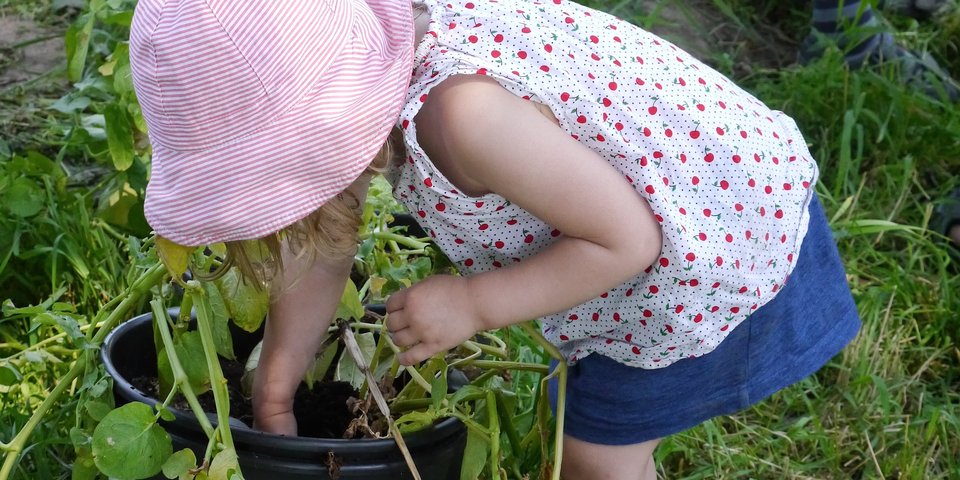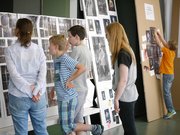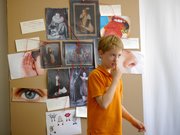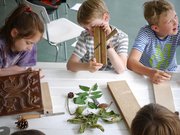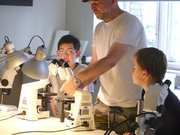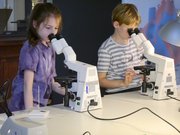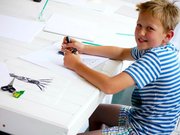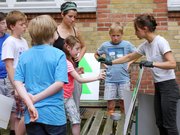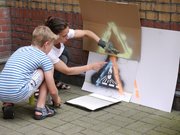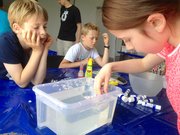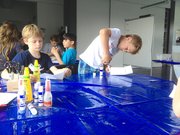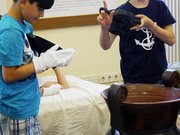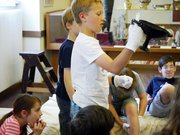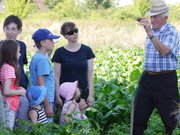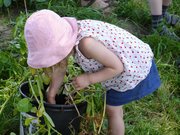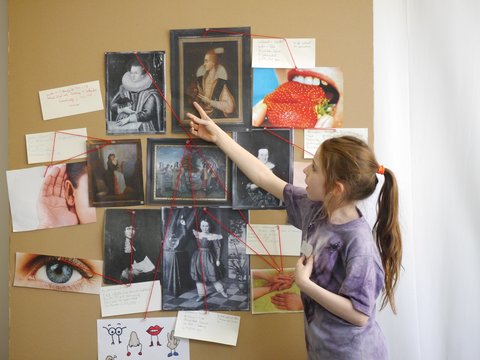
Interdisciplinary Children’s Summer University 2014
The Interdisciplinary Laboratory »Image Knowledge Gestaltung« held the second Interdisciplinary Children’s Summer University from 14 to 18 July 2014. The Summer University gave children aged from around 10 to 13 insights into the different areas of research in the Cluster, letting them take a peek behind the curtains of science and research.
The children took part in a wide range of activities: finding out how an exhibition is produced, taking a close look at wood in art history and furniture-making, and learning how pictograms are created and what happened at a Greek drinking party. The university ended with a trip to the countryside surrounding Berlin, where the participants harvested and cooked potatoes.
Programme:
Monday, 14 July 2014
9 am–2 pm »Exhibition-makers for a day«
How is an art exhibition in a museum actually produced? And what kind of researchers are involved in researching an art collection?
We will slip into the different roles that an exhibition-maker plays, develop an exhibition concept and present it at a private view.
12 noon–12:30 pm Break for lunch together
2 pm–4 pm Visit to the Deutsches Historisches Museum (German Historical Museum)
After spending the morning being exhibition-makers ourselves, in the afternoon we will head to the Deutsches Historisches Museum, where we will track down original objects. »Clothes make people« will be our slogan as we research the importance of clothing over the centuries, looking at portraits, textiles, armour and photos.
–
Location: Sophienstr. 22a, 2nd Rear Building, 2nd Floor, 10178 Berlin, Central Laboratory & Deutsches Historisches Museum
Tuesday, 15 July 2014
9 am–12:30 pm »Wood researchers for a day«
Plants and trees appear in many different ways in art history and furniture-making.
But which kinds of wood are actually used? And when and how? Together we will take a close look at different types of wood and how they are used.
12:30 pm–2 pm Break for lunch together
2 pm–4 pm »Urban ecologists for a day«
Staff from the Museum für Naturkunde will take us on a guided tour of urban ecology in the natural history museum and present the plants and animals that live in the heart of Berlin. We will focus on the signs of climate change that are already visible and its effects on plants, animals and people.
–
Location: Sophienstr. 22a, 2nd Rear Building, 2nd Floor, 10178 Berlin, Central Laboratory & Museum für Naturkunde, Invalidenstraße 43, 10115 Berlin
Wednesday, 16 July 2014
9 am–2 pm »Pictogram designers for a day«
We encounter pictograms almost every day – whether it’s at the traffic lights, at the station or while playing sport. But how are pictograms developed, and how are they produced? We will design our own pictograms, turn them into stencils and then put them to the test.
12 noon–12:30 pm Break for lunch together
2 pm–4 pm Visit to the Cluster Workshop
In the Cluster Workshop, things are built, lasered and designed. We will gain an insight into what goes on in the workshop and will have a chance to get creative and design ourselves.
–
Location: Sophienstr. 22a, 2nd Rear Building, 2nd Floor, 10178 Berlin, Central Laboratory & Workshop
Thursday, 17 July 2014
9 am–12 noon »Archaeologists for a day«
At the Winckelmann Institute at the HU, we will find out how archaeologists are researching a central part of life in ancient Greece: the symposium, a drinking party. We will have our own chance in a workshop to unravel the truth about the symposium.
12 noon–1 pm Break for lunch together
1 pm–4 pm Visit to the UniLab Adlershof
In the UniLab in Adlershof, we will make paper boats and test how big a load they can actually carry. We’ll float the boats on the water too, of course!
–
Location: HU Main Building, Unter den Linden 6, 10099 Berlin & Campus Adlershof, UniLab, Brook-Taylor-Str. 1, 12489 Berlin
Friday, 18 July 2014
8:30 am–5:30 pm »Anthropocene researchers for a day«
We’ll take a trip to the countryside, where we will visit a potato field and take a close look at where our food actually comes from. We will find out what the potato has to do with Berlin, how big an ecological rucksack is and why we have to cook potatoes. Together we will make different potato dishes for lunch.
–
Location: Kyritz an der Knatter, the Kirstein family farm
